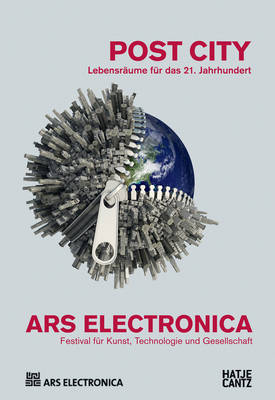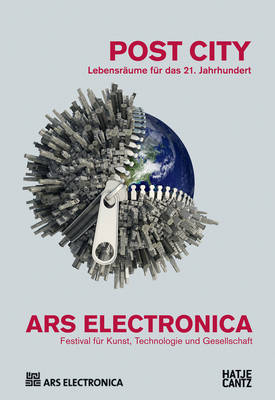
- Afhalen na 1 uur in een winkel met voorraad
- Gratis thuislevering in België vanaf € 30
- Ruim aanbod met 7 miljoen producten
- Afhalen na 1 uur in een winkel met voorraad
- Gratis thuislevering in België vanaf € 30
- Ruim aanbod met 7 miljoen producten
Zoeken
Ars Electronica 2015
Post City Habitat for the 21st century
Gerfried Stocker, Christine Schöpf, Hannes Leopoldseder
€ 38,45
+ 76 punten
Omschrijving
Much of which makes up our cities today stems from the industrial era. But how will cities and habitats be organized thereafter? What will they look like when more robots than people work in the factories, when objects are intelligently linked with one another, when cars drive by themselves and mail is delivered by drones, when climate change makes itself felt, the new megacities run out of air to breathe and the new ones run out of money? Rethinking urban habitats has already begun, and exciting ideas for new architecture and forms of social organization are emerging throughout the world that can keep pace with the changes taking place in upcoming decades.
Experts from all corners of the earth assemble in Linz to be part of an extraordinary think tank. With a total area of 100,000 square meters, the former mail and package distribution center on the railroad grounds becomes the venue for the festival and a laboratory for the city of the future.
Ars Electronica Festival, Linz, 3.-7.9.2015
Experts from all corners of the earth assemble in Linz to be part of an extraordinary think tank. With a total area of 100,000 square meters, the former mail and package distribution center on the railroad grounds becomes the venue for the festival and a laboratory for the city of the future.
Ars Electronica Festival, Linz, 3.-7.9.2015
Specificaties
Betrokkenen
- Auteur(s):
- Uitgeverij:
Inhoud
- Aantal bladzijden:
- 450
- Taal:
- Engels
- Reeks:
- Reeksnummer:
- nr. 1
Eigenschappen
- Productcode (EAN):
- 9783775740210
- Verschijningsdatum:
- 9/09/2015
- Uitvoering:
- Paperback
- Afmetingen:
- 165 mm x 241 mm
- Gewicht:
- 1200 g

Alleen bij Standaard Boekhandel
+ 76 punten op je klantenkaart van Standaard Boekhandel
Beoordelingen
We publiceren alleen reviews die voldoen aan de voorwaarden voor reviews. Bekijk onze voorwaarden voor reviews.








